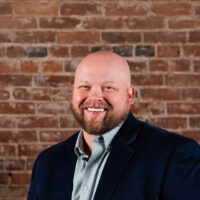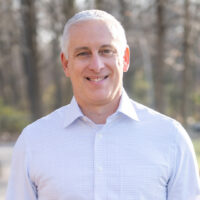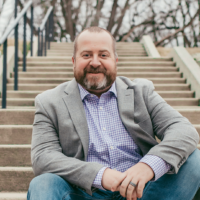Three candidates are running for two at-large seats on the Westfield City Council in the Nov. 7 municipal election.
Republican Kurt Wanniger, former director of Public Works, Republican Chad Huff, a small business owner, and Democrat Gary Lane, executive director of Statewide Lab Business Operations for IU Health, will face off in the Nov. 7 general election.
What are your top three campaign issues?

Lane: My top issues are about future growth. We need to develop a plan to guide our growth over the coming decades; a plan that includes how we will get more commercial development to diversify our tax base. We need more transparency for our citizens to know and weigh in on key decisions. We need investment in our infrastructure (fire, police, and roads/trails) now while we build towards this future.
Wanniger: Putting Westfield residents first. I will work to restore confidence in the Westfield City Council through respect and transparency. I am committed to making a positive impact on the residents of Westfield by being transparent and accountable with taxpayer dollars. Westfield’s growth is inevitable. The council must prepare for that growth, plan with all residents’ best interests in mind, and be thoughtful with our decisions.
Huff: Community connection. Utilizing my deep understanding of the history, roots, and potential for Westfield to encourage cross-generational collaboration. Strategic Infrastructure. I will advocate for roads that support Westfield’s current and future population. Ample parking is also necessary to support local businesses. Additionally, Westfield needs reliable and effective equipment, resources and training for our public safety departments, especially fire. And responsible development. We have to broaden our commercial tax base in order to keep taxes low for our residents.
What are Westfield’s greatest strengths? Where do you see areas of improvement?
Lane: Westfield has great physical assets like our parks and school system that continue to draw people here. The city also has a great asset in the dedicated staff of the all the governmental departments that have served us well. We can most improve in our support of these public servants through proper funding that allows them to keep up with neighboring communities.

Wanniger: The residents of Westfield are actively involved in making this a great place to live. Our community’s commitment to this is one of our greatest strengths. Westfield is lacking in the support given to our fire department. The City of Westfield has to increasingly rely on other fire departments to provide basic services. We also need to address the level of service to our roads.
Huff: Our greatest strength is our people. Westfield residents make active investments back into our community. Our fire department needs more support: the emergency run times, equipment, and recruitment strategies are not up to date when compared to other Hamilton County cities. Also, regarding infrastructure, we need roads that support Westfield’s growth. Road infrastructure is one of our most pressing needs in order to keep traffic flowing and make our city accessible.
How would you describe Westfield’s financial health? Why would you describe it that way?
Lane: Westfield is financially healthy from a debt perspective, but we can do better. We are currently missing out on opportunities for federal funds because of our absence of a Parks Board and haven’t capitalized on all the general bonds we can access for Fire equipment so that it doesn’t come out of our operating budget. We would also benefit from standard guidelines for how TIF paybacks are evaluated.
Wanniger: Westfield’s financial health needs a better balance. Currently, Westfield is heavily reliant on the residential 1 percent property tax base for single family (-80 percent) and 2 percent multifamily property tax base (-10 percent), which makes Westfield vulnerable to assessed valuation and changes in state legislation. To be more fiscally sound, it is critical that Westfield build a good balance between residential and commercial tax base, which is assessed at 3 percent.

Huff: Westfield’s financial health has much room for improvement. We’re lacking in funding for infrastructure that supports our city as well as an adequate amount of public safety employees, resources, equipment and training. This can be fixed by broadening our commercial tax base.
What should be the city’s role in supporting its senior citizen residents?
Lane: The support of senior citizens needs to be a part of the future plan. Active adult communities are being developed all across Westfield in addition to our seniors who have spent their lives in the community. We will need to invest in the amenities that this group of citizens needs no differently than we’ve invested in our schools.
Wanniger: A city should support their senior citizens in aging healthily with the properly supporting businesses and facilities readily available in their community. The city should also partner with not-for-profits, churches and businesses to provide social activities and support services for seniors to rely on.
Huff: Westfield’s role in supporting our senior citizens should be comprehensive and collaborative, involving nonprofit organizations, health care providers and the community. By including everyone, we can create an environment that promotes active, healthy, and fulfilling lifestyles for our senior population. We do have some transportation, health care services and social activities, but we can evaluate where there needs to be improvement.
How do you determine if a proposed development or redevelopment project in Westfield is something you would support?
Lane: I intend to evaluate projects with the analytical rigor that I’ve used throughout my career. While there are more dimensions to decisions than just financial, everything comes down to a weighing of the costs and benefits and how they align to the priorities of the organization. This is why the formulation of a future plan is key. It allows us to ask if a certain decision helps or hinders the plan.
Wanniger: What is best for Westfield, is how I would consider if a development project is beneficial both short-term and long-term. I would consider what benefit it would bring to our community, the potential positive and negative impacts, as well as whether it is the right fit for the location and for the surrounding community.
Huff: We have to start with a commitment to welcoming back developers and companies that know and understand Westfield’s vision for success. However, before we can do any of that, Westfield needs to strategically identify which pockets of the city we want developed with which types of development. I will thoroughly consider all angles and outcomes of projects presented to the council.
What do you most want voters to know about you?
Lane: I’m a husband, father, neighbor, engineer and business leader way ahead of being a politician. I’m running in this election because I want what’s best for Westfield and I have the skillset to help attain it. I’ve gotten to where I’ve gotten professionally because I always take the time to listen to people and I plan on continuing to do so if I’m chosen to serve Westfield.
Wanniger: The success of Westfield is important to me. I want to bring respect back to our community, trust in our government, and be an advocate for the citizens of Westfield.
Huff: As a lifelong resident, I deeply understand the history, roots and potential for Westfield. I recognize the need for strategic infrastructure planning to support Westfield’s growth. I am committed to working towards a sustainable and thriving future for Westfield, and using a strategic approach to responsible development and infrastructure planning is an essential part of achieving this goal.
How can voters learn more about you?
Lane: Gary4Westfield.com
Wanniger: wanningerforcouncil.com
Huff: huffforwestfield.com


